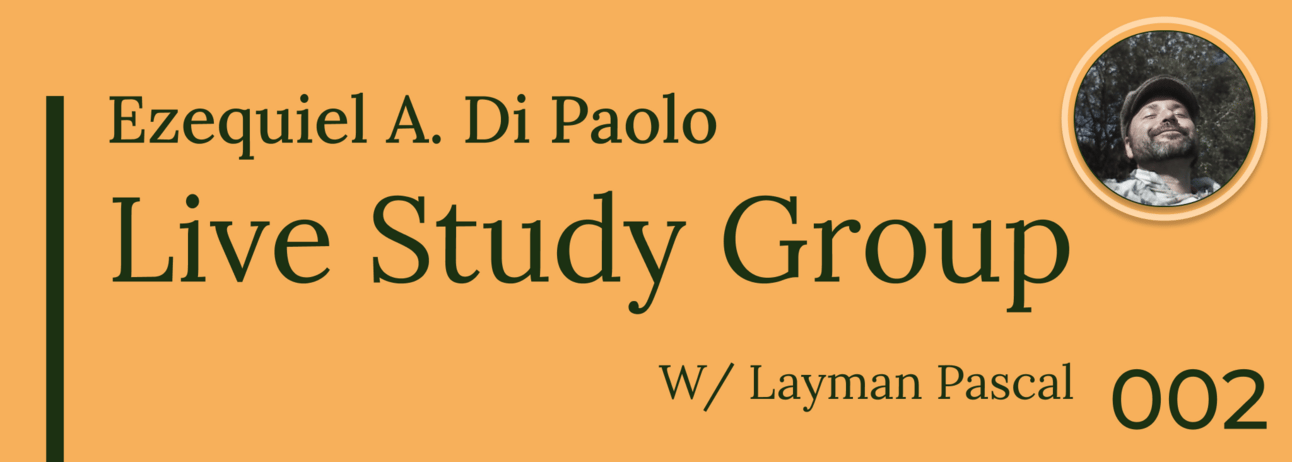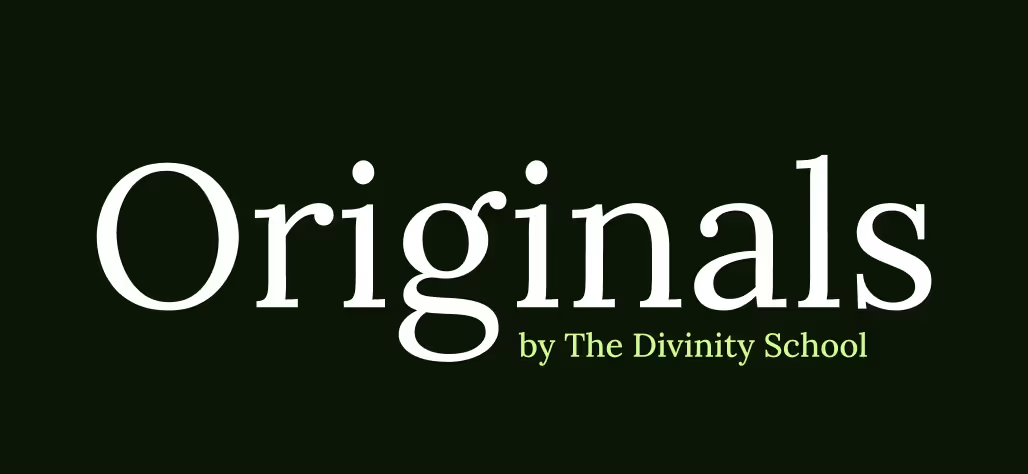- Originals
- Posts
- Bonnitta Roy Ft. Ezequiel Di Paolo
Bonnitta Roy Ft. Ezequiel Di Paolo
How Minds Emerge and Worlds Change
What if the way we’ve been trained to think—to separate subject from object, mind from body, human from world—isn’t just false but the key to understanding—and undoing—the meta-crisis?
This month on Originals, we release our episode Linguistic Bodies and Sensorimotor Agency with Originals Host Bonnitta Roy featuring Ezequiel A. Di Paolo for a conversation that pulls the thread on everything we take for granted about consciousness, agency, and change.
Ezequiel A. Di Paolo is a Research Professor at Ikerbasque, the Basque Foundation for Science, in San Sebastián, Spain. He is also a Visiting Professor at the Centre for Computational Neuroscience and Robotics at the University of Sussex, UK. His interdisciplinary work integrates cognitive science, phenomenology, philosophy of mind, and computational modeling, focusing on enactive approaches to life, mind, and society.
Ezequiel isn’t just challenging outdated models of cognition. He’s dismantling the frame that makes the world look like something to observe, manage, or fix from a distance.
We’re never just observing—we’re always implicated. To know something is to touch it, to be touched by it.
Philosopher & Futurist Bonnitta Roy Ft. Cognative Scientist & Researcher Ezequiel A. Di Paolo
In our view, cognition isn’t an internal process—it’s an unfolding between bodies and environments, shaped by histories, habits, and tensions we barely notice. This has radical consequences.
Because if the world isn’t “out there”—if it's co-constructed through our sensing, moving, and meaning-making—then the way we know directly shapes the kind of worlds we build.
During our 3rd Originals Watch Party on Sunday, April 20th, we will have a live call where Bonnitta Roy shares a private release of selected clips from her interview with Di Paolo and facilitates a discussion about how;
Cognition unfolds between bodies and environments—not inside heads
Embodied memory shapes what feels possible, even before thought
Our dominant habits of knowing may be limiting the futures we can access
Attunement could be the root of personal, social, and ecological change
What if developing new sensitivities isn’t abstract at all but something we do every time we notice a shift in ourselves, others, and the world? Could these everyday moments of attention become the ground where real change begins?
Bring your questions, your embodied insights, and your willingness to be touched by the conversation. Use code Di_Paolo_OG for 50% off an Annual Membership to Originals.

Join us for a Study Group inspired by Di Paolo’s work, hosted by Zach Schlosser.
Robot Futures: From Tools to Partners
In an era when the boundaries between human and machine blur, how do we envision a future where robots are not mere tools but participants in a shared ecological and cognitive landscape? This Study Group, guided by Zach Schlosser, will explore whether and how robots can evolve into meaningful social partners capable of relational, embodied, and value-driven interactions across various fields of work. And, to the degree they are not capable of these, what restrictions should be placed on robot interventions?
Join us for our next Study Group, Hosted by Zachary Schlosser, Tomorrow, April 3rd. Robot Futures: From Tools To Partners is open to everyone; just click RSVP and create an Endemic community profile.
Zachary Schlosser is the Education Director at Endemic, serves as Managing Director of Education at Prosperity of the Commons International, and consults with policy makers, institutional foundations, and startups on AI alignment and product research. He is also a Board Member of the Ohio Public Banking Coalition. Zach is a contemplative entrepreneur who has spent thousands of hours in meditation retreat and taught meditation to startup founders, activists, non-profit boards, prisoners, students, and CEOs. He is dedicated to reintegrating advanced technology into the foundations of the living world so that the human-made environment fosters individual and collective wisdom.

Our Second Study Group in the Di Paolo Series, hosted by Laman Pascal
Beyond the Code: Challenging Computationalism’s Dominance
This Study Group critically examines computationalism, the dominant paradigm in both computer science and cognitive science. This Study Group will draw on Ezequiel Di Paolo’s review of the history of enactive cognitive science, existential philosophy, and phenomenology to highlight both the achievements and limitations of computational thinking and consider how enactive approaches might expand our understanding of perception and cognition in humans and AI.
Join us on April 10th for Beyond the Code led by Layman Pascal and Zach Schlosser. Study groups are free for our community; just click RSVP and create a profile to join the conversation.
Layman Pascal is the Director of Strategy at the forthcoming Endemic School SPECTRA. He is a philosopher and former meditation teacher based in Northern Ontario, known for his work on the Metaphysics of Adjacency and the Integration Surplus Model. Layman has contributed extensively to Integral Theory, developing models such as the Coaxial Stages and elaborating on Metaprogressive Politics. He hosts The Integral Stage podcast and is a senior teacher at Metamodern Spirituality retreats. Additionally, Layman co-edited Perspectiva’s series Dispatches From a Time Between Worlds and co-chairs the Foundation for Integral Religion and Spirituality.
How Our Study Groups Work
Our study groups are usually lightly facilitated, conversational spaces where we engage deeply with ideas through shared reflection, emergent dialogue, and active listening. There is no single expert or rigid structure—rather, we make space for new thought to unfold in real-time, in response to each other and the questions that surface.
Participants are encouraged to bring their own insights, experiences, and uncertainties. We work not to resolve ambiguity but to stay with it, to let the conversation shape us as much as we shape it.

